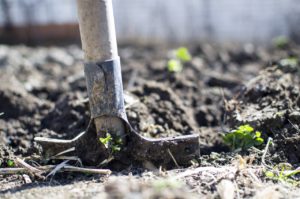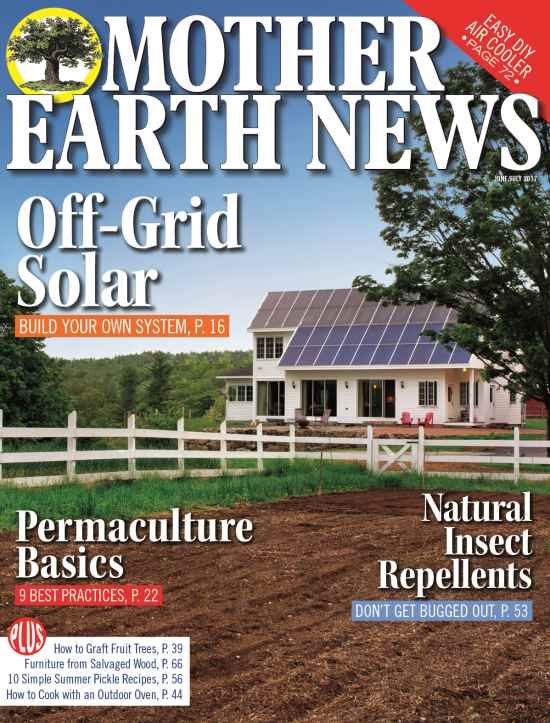Homesteading is the aim for a more self-sufficient lifestyle, and is an admirable pursuit for any individual or household. No matter how large or small your collection of livestock, the moment you begin nurturing your own farm animals, provender becomes a major concern.
Unlike a large farm, homesteaders plant to primarily use their crops. The same goes for your personal livestock. So without the expanse of land to provide foraging options, what do your few chickens, pigs and goats do for healthy, natural feed?

The Perks of Alfalfa
One viable option is alfalfa — a herbaceous, erect-growing legume. You might recognize the multiple leafy stems arising from large crowns at the soil surface. A mature plant can have multiple stems reaching 24 to 36 inches in height. Alfalfa stems are branched and slender, with three linear, oblong or obovate leaflets which are toothed toward their tips.
Alfalfa is widely grown worldwide as forage for livestock, mostly harvested and stored as hay. However, it can also be grazed naturally, made into silage or fed as green chop. As a homesteader, one of your main concerns will be maximizing your crop production on your land.
Alfalfa is uniquely resilient when it comes to severe drought conditions and cycles. It can grow all year, has a consistent yield of more than 14 tons per acre and 100 percent of the crop above-ground can be harvested and used. Some other benefits to alfalfa to consider are:
- Deep-rootedness
- Perenniality
- Salt tolerance
- Ability to use degraded water
- Contribution to wildlife habitat
This last characteristic is valuable to wildlife suffering during a drought, as well as being beneficial to consumers who depend on milk, cheese, yogurt and ice cream.
Despite the benefits of growing alfalfa, the production of the crop is down about 20 percent during the past two decades. While part of the reason is due to the reduced usage of natural forage for livestock, there are other reasons alfalfa has a reputation for being difficult. To ensure your alfalfa crop flourishes, make sure you avoid hilly or rocky grounds, and shallow, acidic or eroded soils. Instead, ensure you plant on a level, bottomland site free of potholes.
Alfalfa For (Almost) Everybody
The crop also can serve as a product for sale. Despite alfalfa not being known as a consumable plant for humans — unless you count sprouts on your sandwich — there are a multitude of health benefits and retail opportunities to exploit. In regards to organic gardening use, alfalfa generates its own nitrogen, as well as several other minerals, including:
- Phosphorus
- Potassium
- Calcium
- Zinc
- Iron
- Boron
- Magnesium
- Sulfur
As a source of these minerals, the plant builds organic matter in your soil and provides nutrients to neighboring plant roots. The high nitrogen content aids other organic material to decompose and prevent compaction. The protein, amino acids, fiber and sugars in the stalks of alfalfa feed microorganisms, while the hormone called triacontanol stimulates the growth of roots, enhances photosynthesis and help suppress many soil-borne diseases.
Additionally, you can sell alfalfa to other homesteaders or agriculturalists as a composting agent. When added to compost, the plant acts as a stimulant. It decomposes quickly and generates heat, which adds to the decomposition of the compost as a whole. The heap will result in a higher nutrient level, which leads to more nutrient-dense produce from the field or garden.
Alfalfa is also a great attractant to iron, a micronutrient needed for chlorophyll synthesis. It also attracts other important nutrients up to the soil’s surface, where they are stored in the leaves of the plant. You can also use leftover alfalfa as a “cover crop.” Known as “green manure,” you plant cover crops in the fall and dig them up in the spring to improve soil. You can cut the crop down at soil level and mulch it, as well.
The bottom line is that alfalfa is an excellent crop to add to your field rotation. It will serve as a source of nourishment for your livestock, or simply provide an additional source of composting material for further growth and sustainability.











1 Comment
I understand alfalfa has many benefits for plants. Is it something a home gardener would want to plant to chop periodically as mulch? Does it become invasive? Is it too perennial, meaning hard to get rid of?